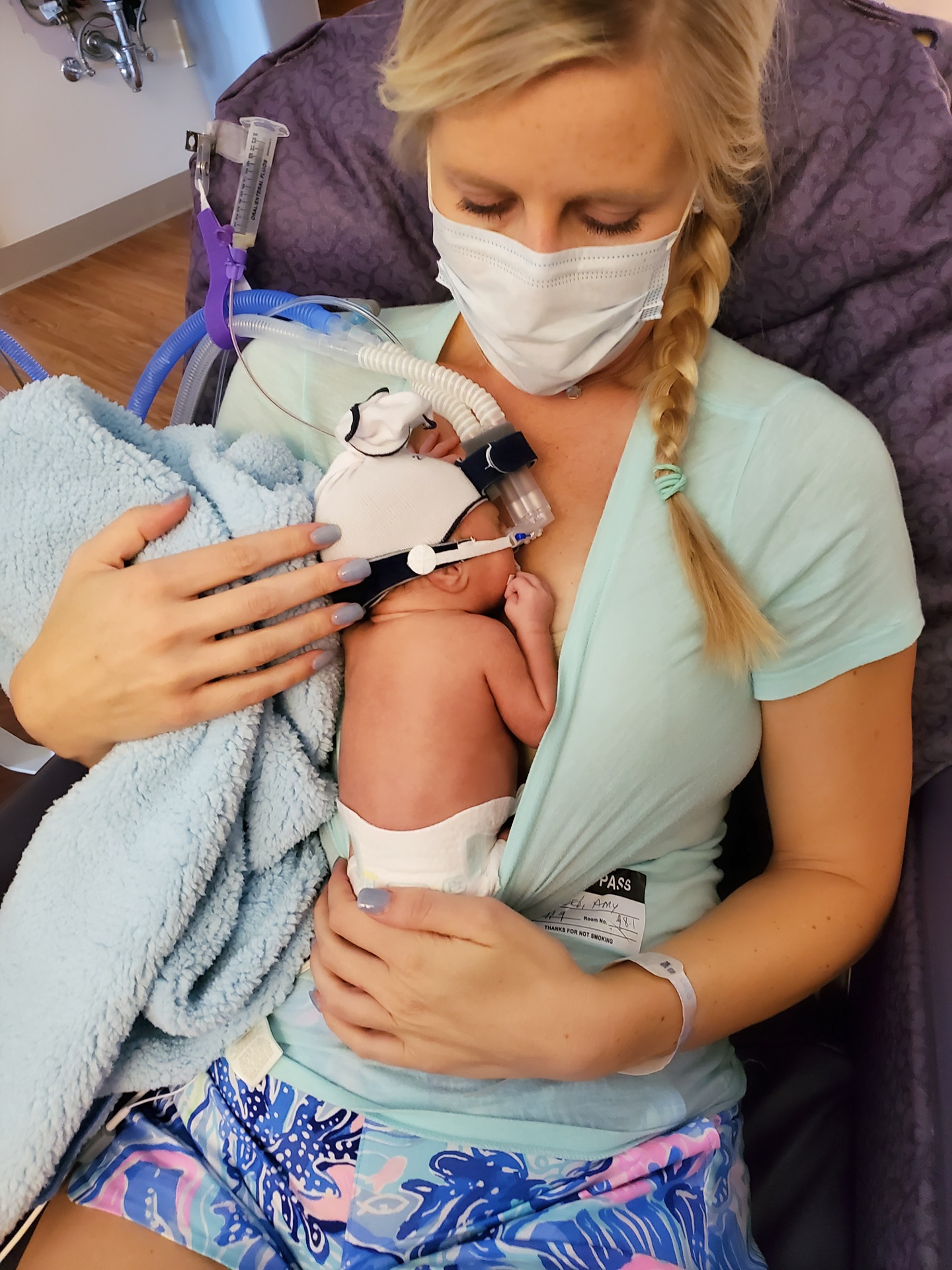A NICU Stay During The Pandemic

In early 2020, healthcare facilities were forced to make difficult decisions to protect their patients and staff members due to the COVID-19 pandemic. My high-risk pregnancy during this pandemic brought many additional challenges and circumstances, including the everchanging and restrictive visitor policies, social isolation and lack of hospital resources. Since visitor restrictions were strict, I attended my prenatal appointments and procedures by myself. I went into active labor at 28 weeks and rushed to the hospital. I spent precious time finding the facility’s one open entrance and then had to wait in line at the COVID-screening station. I nearly delivered my son in the lobby due to these time-consuming precautions that were in place.
My son was born at 28 weeks gestation and then spent 99 very long days in the NICU. It wasn’t until we had been home for several months that I started to process the trauma and isolation I experienced throughout his NICU stay. I survived his hospitalization by developing a fight or flight mindset in an effort to protect myself from potential undesirable outcomes. I focused on every detail of his daily care and, at the time, failed to recognize how abnormal our overall experience was. As a NICU nurse myself, I openly had very high expectations for my son’s care. I set boundaries for myself with the hopes of not becoming an overbearing, difficult parent, but as I now reflect back on our stay, I was very aware of the pandemic-related issues we encountered. There were resource issues as well as communication and support issues.
Resources, which are an imperative part of hospital care, were strapped due to the pandemic. Keeping the hospital, and particularly intensive care units, clean was a priority, but cleaning products were scarce and therefore rationed. Nursing productivity was highly scrutinized, and nurses were often sent home mid-shift to adjust to fluctuating acuity. It was not uncommon for my son to have multiple nurses throughout a shift. Nursing assignments were combined mid-shift to accommodate staffing needs and float nurses were frequently utilized. I understood the need to frequently calculate and monitor productivity, but now as a parent, I have a deeper understanding of the unnecessary anxiety and harm due to lack of continuity of care.
During my six-week OB follow-up appointment, my doctor asked me if I had had the opportunity to support other parents in the unit. Her question provoked thoughts and brought awareness to the impact the pandemic had on my son’s hospitalization. Throughout his 99-day stay, I only engaged in a brief conversation with one other family. There simply was not communication between families. Parents socially distanced while scrubbing in and then went directly to their child’s bedside. There were not evening social events or weekly CPR classes that are typically offered in the NICU. Since siblings weren’t permitted to visit, the unit was abnormally quiet. The family lounge was consistently empty, as parents were diligent about leaving the hospital at the conclusion of their visit. These factors contributed to a very isolated experience.
I found support within my family and my son’s team of nurses. Although my extended family members were unable to visit the NICU, we established a daily routine of communication in order to share updates and progress. My friends and family were also able to view my son remotely through a web-based camera system, which was an invaluable resource during this challenging time. The NICU nurses and social workers recognized the isolation parents were experiencing during this pandemic; they extended themselves to offer support. My son’s nurses routinely engaged in conversation with me that went beyond their daily routine and expected scope of practice. I’ll forever be grateful for their commitment to caring for both babies and families.
In addition to the support I received from my family, friends, and son’s nurses, the Graham’s Foundation provided me with many NICU resources. They offered me access to virtually connect with other preemie parents who understood what I was experiencing. The Graham’s Foundation also sent me an unexpected care package that included hard-to-find preemie clothes, information on prematurity, and resources.
The one aspect of medicine the pandemic hasn’t changed was the high-quality care my son received. Someday, I’ll tell him about the unwavering love, support and dedication his caregivers displayed during such a challenging time. They are forever our real-life heroes.
